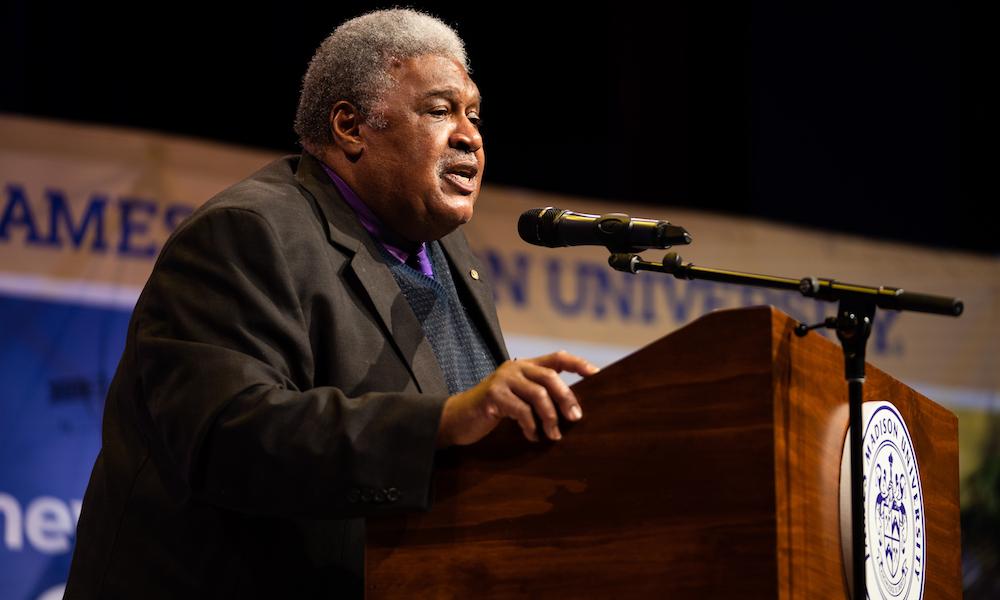Madison Vision Series speaker delivers message of hope
Nation and World
SUMMARY: Justice John Charles Thomas, an acclaimed poet and scholar, and the first African-American on the Supreme Court of Virginia, spoke at JMU in February as part of the Madison Vision Series.
In the penultimate Madison Vision Series lecture of the 2018-19 academic year, retired Justice John Charles Thomas preached a message of hope — a “hope that inspires us” to effect meaningful change in the world.
Society has been seriously broken in the past and remains fractured today, but there are ways to mend it, said Thomas, an acclaimed poet and scholar, and the first African-American justice on the Supreme Court of Virginia.
Thomas encouraged audience members to use their talents to help fulfill the promise of America, as written in the Constitution, to form “a more perfect union.”
“The Founding Fathers knew their work wasn’t done,” he said. “They knew it was going to take years. They gave us a pretty good foundation, but the work didn’t stop. The work continues even now. … Have the sense that you are part of making America all that it is supposed to be.”
Thomas grew up in Norfolk, Virginia, during a time of racial segregation. In high school, he submitted an original poem in English class, but the teacher rejected it, believing that a black student could not have written it.
|
'Have the sense that you are part of making America all that it is supposed to be.' |
Such discrimination on the basis of race not only holds us back as a society, Thomas said, it also makes no sense, least of all biologically. He pointed out that in the human genome, the color of one’s skin requires the least amount of genetic coding. “It would make more sense to discriminate on the basis of one’s earlobes than on the basis of skin color,” he said.
Thomas attributes his positive outlook to having hope, and summoning it from others. He shared the image of lighting an entire room using a single candle. “The candle that lights another candle burns no less brightly,” he said. “The light of knowledge gets stronger around the world. Never withhold the light.”
Thomas believes a liberal arts education provides “the skills of freedom,” among them “finding your own voice and sharing it with others.”
Youth can be a source of power, he said. As president of a black student group at the University of Virginia in the 1960s, Thomas used protest to make gains in equality and inclusion on campus. Progress does not always come without resistance, he said, adding that sometimes people need to speak up and use the law to force change.
Thomas credits his own rise from the housing projects of Norfolk, to the Supreme Court of Virginia, to an international court of arbitration for sport, to not being afraid to take risks and do what others ask of you.
“There is an amazing power to saying ‘yes’ to those issues that come to you when you’re young,” he said.
Thomas closed the lecture by reciting two of his poems, “The Morning” — the work rejected by his high-school English teacher — and “Light the Soul,” both of which he once performed at Carnegie Hall.
